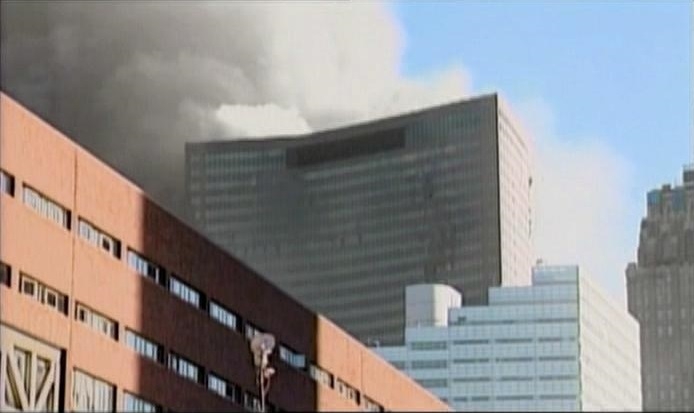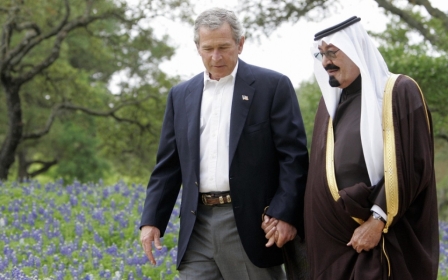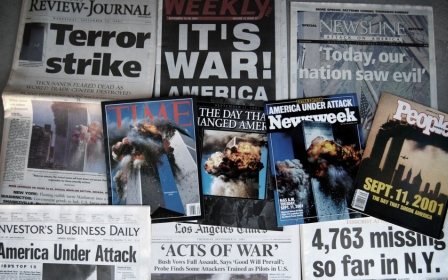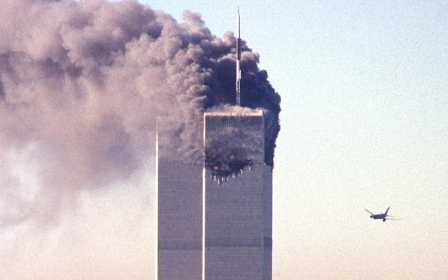FILM REVIEW: Demolition job

Hidden down an alley under a Victorian railway arch in south London, seekers after 9/11 “truth” gathered for the premier of Incontrovertible, a crowd-funded documentary questioning the mainstream media account of the attacks on New York and Washington on 11 September 2001.
Film maker Tony Rooke made the news headlines in Britain in 2013 when he went to court in Horsham, Sussex, after refusing to pay his TV licence over BBC coverage of the September 11 attacks, which he claimed contravened the Terrorism Act.
Representing himself in court, he used evidence that he claimed showed the BBC had failed to accurately report what happened in New York during the attacks. Rooke’s apparently quixotic battle ended in a conditional discharge and a suspended sentence. (The film says proudly he has not paid the mandatory TV licence since 2005.)
Rooke has now made a film, following up what he calls the “incontrovertible” proof that World Trade Centre building 7 was brought down by controlled demolition on 11 September – including the fact, conceded by the official 2008 inquiry into the WTC7 collapse, that for 2.5 seconds the building was in free fall as it collapsed.
For the supporters of a new inquiry into the attacks, the collapse of WTC7 - some seven hours after the second World Trade Centre tower collapsed - is the single most important piece of evidence that they say shows the official account of the 9/11 Commission report of 2004 does not stack up. For a start, that report conspicuously failed to even mention the collapse of a third building on 9/11.
Further, the BBC, CNN and several other news agency were reporting the collapse of WTC7 20 minutes before it actually happened, implying for those who suspect a dark conspiracy that these organisations had foreknowledge of the attacks, or at the very least they were being fed information by someone who did.
The 47-storey building contained a "hornets' nest of alphabet agencies," as one policeman in the film puts it. These included the Office of Emergency Management, which was in charge of handling the 9/11 response in New York, as well as the CIA, Department of Defense, Secret Service, the Security and Exchange Commission, among others.
Like Dutch demolition expert Danny Jowenko, who on seeing the footage of the WTC7 collapse – unaware he was watching footage from 9/11 – said that it was an expert demolition job, many can’t help but watch the footage and see what appears to be just that: a building collapsing in neat symmetry in just the same way as we have all seen in films of controlled demolitions elsewhere.
Through interviews with members of the fire service, police, judiciary, six-term ex-Congresswoman Cynthia McKinney and researchers in the US, UK and Europe, the film builds a powerful, if not quite incontrovertible, case, that we have not been told the whole truth about the terrible events of this world-changing day.
The interviews are conducted by Matt Campbell, whose brother Geoff was killed in Manhattan on September 11, and is now a dedicated campaigner on 9/11 "truth". His presence in the film is a reminder that 9/11 sceptics include many family members and survivors of the attacks – several of whom are also interviewed.
The film is narrated by British actor Michael Culver, who gives the voiceover a kind of old-school British gravitas, even as he describes figures like Tony Blair, former Vice President Dick Cheney and others as “bastards”. Rooke’s script occasionally boils over in fury at how the British political and media establishment has labelled those who question the 9/11 story as “conspiracy theorists” and, in the words of Prime Minister David Cameron, “non-violent extremists”.
With its artfully crafted framing of clips and interviews, it feels like the work of a British Michael Moore, with the same kind of wry black humour, only occasionally stretching the rhetoric into wobbly territory (such as when he suggests that black people in uniform are betraying the evidence that “their leader” Martin Luther King was killed in a government conspiracy. Does race predetermine who leads us and how we respond to injustice?).
The strength of the film is in distilling the vast amount of technical, video and witness statement evidence collected around 9/11 into a digestible form that manages to convince cumulatively that there are still questions to answer. There are no new revelations that it adds to that which has already been collected – but watching George W Bush stumble into incoherence after a reporter asks him how he feels about claims he had foreknowledge of the attacks is priceless, if inconclusive.
Altogether, the sceptics would argue that there is enough evidence as required by law for reasonable cause to justify an open-ended criminal investigation into 9/11, but the drip, drip nature of revelations – and a consensus in the Western media that has not budged from the official view - has meant that this line is still an outlying one.
The film asks sceptical veterans in the security services and political system to explain why they still want answers. Perhaps the most convincing, because of his track record of investigating “deep state” activities in Italy, is Italian Supreme Court judge Ferdinando Imposimato, who states that 9/11 was a “false flag” attack of the same kind seen in Italy during the Cold War under the NATO-backed Gladio programme of terrorism and is part of a 21st century “strategy of tension”.
The film includes several well and lesser known clips of figures including John Kerry, WTC owner Larry Silverstein and members of the fire service on the day saying that WTC7 was “pulled” – ie brought down with explosives - due to fears that it was going to collapse because of fire and damage from the adjacent Twin Towers collapse. However, the final NIST report blamed the collapse on office fires in the building. This is where most campaigners say the findings defy the laws of physics, as well as the clear evidence from the multiple videos of the collapse, that fires could never cause such a free-fall drop. No other steel-frame building has ever collapsed due to fire.
Campbell introduced the film in south London, explaining that it wasn’t aimed at campaigners, but rather at serving members of the police, fire and armed forces. He admitted that no senior officers in the US or UK were prepared to be interviewed for the film or support its contentions.
It is hard to know whether the film will be able to convince those who don’t already believe that we have been lied to over 9/11. What can’t be doubted is that both the ongoing crises in the Middle East and the emergence of a surveillance state in the US and Britain to a great extent are the direct consequences of the events of that day. Also certain is that there will always be room for doubt and calls for re-investigation when even 9/11 Commission members stated that the official investigation was “set up to fail”, and 28 pages of findings from the Congressional Joint Intelligence Committee Inquiry have remained blacked out to this day.
New MEE newsletter: Jerusalem Dispatch
Sign up to get the latest insights and analysis on Israel-Palestine, alongside Turkey Unpacked and other MEE newsletters
Middle East Eye delivers independent and unrivalled coverage and analysis of the Middle East, North Africa and beyond. To learn more about republishing this content and the associated fees, please fill out this form. More about MEE can be found here.




